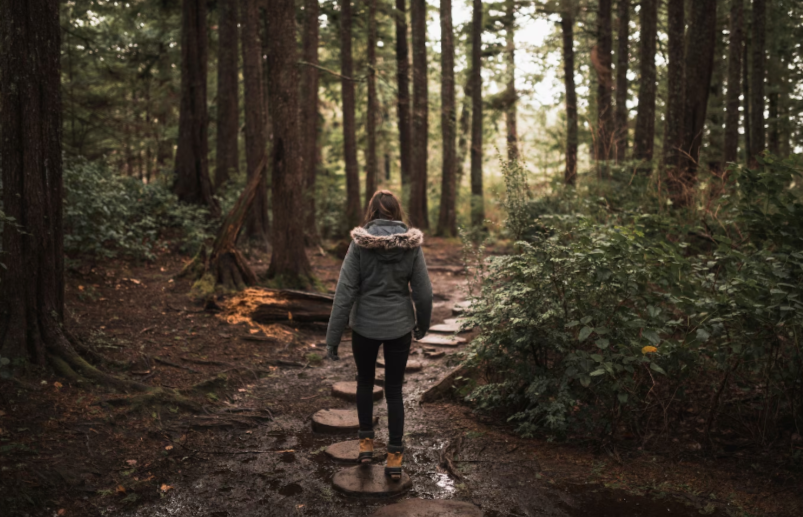
Get Outside in Style: The Confidence Guide to Nature Exploration
Engaging with nature is more than an adult recreation and leisure activity. It is a mechanism for growth, independence, and understanding the environment in which you live. Whether you are walking into the forestland for the first time or refining your outdoor skills, confidence is key. With the right mindset and preparation, anyone can learn how to plan for and operate in order to safely and adequately interact with nature. Here are five foundational tips to ensure you feel prepared, capable, and connected as you start to explore natural spaces:
Master Basic Navigation Techniques
The fear of getting lost in nature is very common for many newer explorers, but gaining proficiency in navigation skills decreases much of that fear. You should become familiar with reading topographic maps and be able to navigate using a map and compass. Using a map and compass will help you understand how points of reference, contour lines, and cardinal directions work together to accurately plot your route. Digital devices like GPS or map apps are useful and smart, but should not solely be relied upon; they run out of battery, and cellular signals may not exist. Confidence is gained by your comfort in knowing that if all else fails, you will know enough to orient your surroundings and return safely.
Develop Useful Knife Skills
A quality folding knife is one of the most versatile tools in your outdoor kit. It’s essential for food preparation, sculpting tools, cutting rope, and even creating fire-starting accoutrements. Knowing how to handle a blade safely and skillfully isn’t only practical but empowering. Start by learning how to whittle and sculpt controlled cuts on softwood. Exercise making feather sticks for fire energy and notching branches for sanctum construction. Always cut down from your body and maintain a secure grip. Invest in a practical cutter that fits comfortably in your hand and cinches safely when open. With proper care and use, your knife becomes an extension of your capability, strengthening both your resourcefulness and confidence in the wild.
Build Situational Awareness
Being present and attentive to your terrain helps you avoid implicit hazards and enhances your overall experience in the wilderness. Situational mindfulness involves further than watching for wildlife or unstable footing; it’s about observing patterns, weather changes, and even animal gestures. Regularly overlook your surroundings, listen to ambient sounds, and remain alert without getting anxious. Mindfulness reduces the threat of surprise hassles or mistakes and promotes a deeper connection with nature. Confidence stems from knowing you’re laboriously engaged with your terrain, prepared to respond courteously rather than reply impulsively.
Learn Fire and Shelter Fundamentals
Two core survival precedents, warmth and protection, are addressed by fire-structure and shelter-making skills. Even if you don’t face an emergency, the capability to construct a fire and make a basic shelter fosters confidence and self-efficacy. Start by rehearsing fire-making with dry tinder, energy, and a dependable ignition source such as a ferro rod. Trial with colorful fire structures like the teepee and lean-to to understand which burns most efficiently. For shelter, try creating a debris shack or a simple tarp setup using a minimum outfit. The more you exercise, the more briskly and effectively you’ll be able to acclimate these chops in real-world scripts.
See also: Tips for Staying Informed About Airline Industry Changes
Prepare with the Right Gear and Mindset
Being well-equipped doesn’t mean carrying the most precious gear; it means choosing dependable, functional particulars that suit your experience, position and the conditions you will encounter. Pack rudiments like a headlamp, water filtration system, multi-tool, and extra apparel layers. Learn how to use each point before setting out. Just as important as gear is your mindset. Approach nature with respect and curiosity, but also determination and calm. Conforming to changing circumstances, whether it’s unforeseen rainfall shifts or a missed trail marker, is an internal skill that builds over time. Confidence comes not from the absence of challenges, but from your growing capability to handle them with adaptability.Confidence in nature experience is developed, not just inherited. By focusing on your skill development, situational awareness, prepped gear, and mental preparation, you are creating an excellent foundation to improve upon every outdoor experience. Each trip you take is a new group project that solidifies you to the land and the discovery of yourself. With the five tips provided, you are not only experiencing nature but also beginning to experience yourself.




